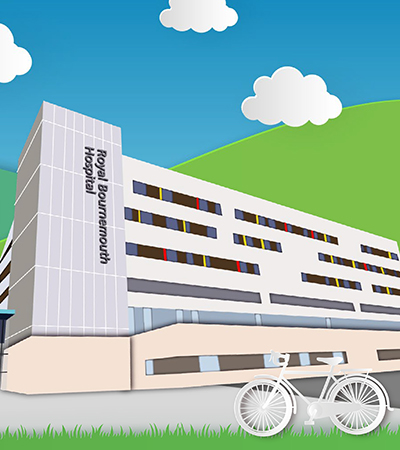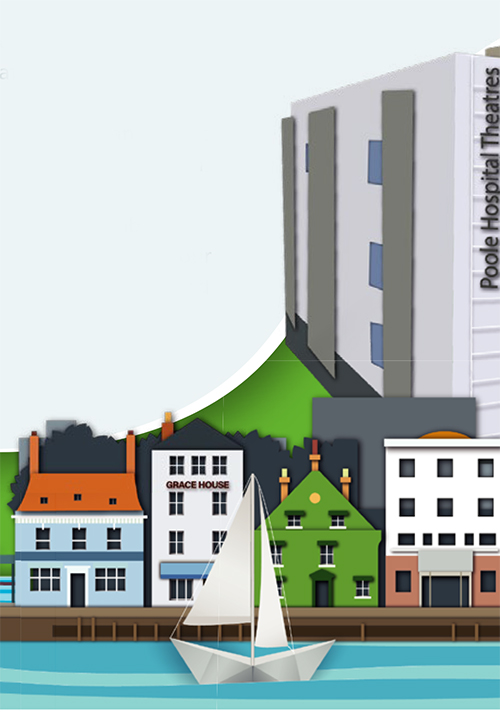GUHD News

This weekend saw the launch of the 'For a Greener NHS' Programme - to engage and support all staff to play their part in tackling the climate and health emergency.
Climate change poses a major threat to all our health as well as the planet. The environment is changing, that change is accelerating, and this has real consequences for us all.
This is why the NHS has launched the 'For a greener NHS' programme, working with all staff, hospitals and its partners. It aims to build on the great work being done by trusts across the country, sharing ideas on how to reduce the impact on public health and the environment, save money and – eventually – go net carbon zero.
Therefore in order to answer this call, the Sustainability Team are asking for your help.
We want to hear all your ideas on how we can make our own Trust more sustainable to further reduce our carbon emissions.
Any idea, big or small, we would like to hear from you. Please email it to the This email address is being protected from spambots. You need JavaScript enabled to view it..
Waste Policies and Guidance Royal Bournemouth and Christchurch Hospitals
Waste Management
Royal Bournemouth and Christchurch Waste Policies can be found here.
What can be recycled?
In the mixed recycling green-lidded bins (staff areas) and the metal bins (public access areas):

|
Disposal cupboards |
For collection of all flattened cardboard to go for recycling |
Recycled |
|
Catering food tins |
For collection of patient food waste monitored by the Kitchens |
Composted |
|
Used linen cupboards |
For collection of all used linen to be washed |
Laundered |
|
Desk top battery bins |
For the collection of batteries
|
Recycled |
Battery Recycling

The RBH has a 120 litre battery can, located outside the West exit of the Hospital (by the mortuary - please see sustainability map, coming soon). The following batteries can be recycled through this scheme:
- 6V
- D
- C
- AA
- AAA
- 9V
- Button cells

Tyre and Alignment Check Scheme
With your NHS badge in hand and account code 78UNIVER, you can now visit any of the local PROTYRE branches for a free tyre pressure and wheel alignment check plus discounted alignment adjustments if required.
Why is this important? Pollution from cars exhaust pipes is actually less than the emissions coming from their brakes and tyres. This is leading to serious health problems and as much as 28% of microplastics in the ocean.
Protyre has found that 48% of cars have misaligned wheels. Data from Bridgestone suggests that 2.5 degrees of wheel misalignment causes 20% more tyre wear and increases fuel use, too.
As Mark Longden from RL Automotive explained, "ensuring proper wheel alignment could help to clean our air and decrease carbon emissions. The loss of fuel economy could be the equivalent of £5 on a tank of fuel or several kilometres of lost electric vehicle range."
New Research into the health Impacts by Mark Ashworth - Ex GP, now researcher in Preventative Healthcare and links with Sustainability - Kings College London
Mark has been studying impacts of air quality on health by data mining anonymised patient consultations and prescriptions data. He was able to find significant correlations with air quality readings for both NOx and Particulate Matter.
25% rise in NOx leads to:
- 7% rise in respiratory consultations (children)
- 5 % rise in inhaler prescriptions (children)
25% rise in Particulate Matter leads to:
- 6% rise in respiratory consultations (children)
- 2 % rise in inhaler prescriptions (children)
Now you can see why we have organised this staff discount and promote it on the sustainability pages.
Other ways to reduce your driving emissions:
- Try to avoid driving! – Walk, cycle, public transport
- Drive an economic vehicle – when choosing a vehicle, as well as electric drive, also consider the size and weight of the vehicle.
- Eco Driving – learn how here: https://www.youtube.com/watch?v=55tyMR_d-tc
Waste Policies and Guidance Poole
Waste Management
Poole Hospital Waste Policies can be found here.
A helpful leaflet can be found here that summarises much of the Trust waste policies.
For additional guidance, please see this Pharmaceutical Waste Flow Diagram with list of Cytotoxic and Cytostatic Drugs and this supporting document with detailed examples of how to classify waste for segregation.

EV charging
If you have an electric vehicle, please only charge this in approved EV charging bays.
RBH
For electric car users the Trust has installed two 13amp sockets in at the back of the multi storey car park ground floor. Staff with electric cars who find themselves short of power may make use of these for a maximum of four hours at any time. Staff may also make use of the adjacent ‘electric buggy’ charging bays, but these must be vacated by 4.30pm. People who need routine charging can find EV charging points in the local vicinity at this link: https://www.zap-map.com/live/
Using other sockets and extending a cable across the car park floor is a trip hazard, and any vehicles found to be charging in this manner will be disconnected from the socket for safety reasons.
Contact Travelteam by email only This email address is being protected from spambots. You need JavaScript enabled to view it. for further information.










